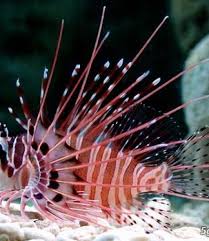Dragons (龙 – Lóng) have long been revered in Chinese mythology as symbols of power, wisdom, and supernatural strength. Unlike the fearsome, destructive dragons of Western mythology, Chinese dragons are often depicted as guardians, celestial beings, or even divine challengers that test the courage and virtue of heroes.
Throughout Chinese folklore, classic literature, and oral traditions, many legendary figures have encountered dragons in battles, challenges, or alliances that define their heroic destinies. These mythical tales embody the virtues of perseverance, intelligence, and bravery, reinforcing the belief that true heroes must prove themselves through trials involving the mightiest of creatures.
This article delves into the role of dragons in the heroic myths of China, exploring stories where warriors, emperors, and sages triumph over or are aided by these legendary creatures.
1. The Symbolism of Dragons in Heroic Myths
In Chinese culture, dragons are more than just mythical beasts; they are embodiments of natural forces, divine justice, and spiritual wisdom. When they appear in heroic legends, they often serve one of three roles:
- The Ultimate Adversary – A dragon may test the strength and intelligence of a hero, requiring them to defeat or outsmart it.
- A Sacred Guardian – Dragons are sometimes protectors of powerful relics or sacred places, challenging heroes to prove their worth before receiving divine rewards.
- A Benevolent Guide – In some legends, dragons aid noble heroes, offering them wisdom, supernatural weapons, or even carrying them into battle.
These roles shape the narratives of legendary Chinese heroes, making dragons pivotal figures in tales of victory, honor, and transformation.
2. Legendary Heroes and Their Battles with Dragons
2.1 Yu the Great and the Taming of the Yellow River Dragon
One of the most famous figures in Chinese mythology is Yu the Great (大禹 – Dà Yǔ), the legendary founder of the Xia Dynasty and a hero credited with controlling the catastrophic floods of ancient China.
According to legend, China was plagued by raging waters that no one could control. Hidden beneath the Yellow River was a mighty dragon, whose thrashing caused the waters to rise uncontrollably. Unlike other rulers who attempted to stop the floods through force, Yu studied the river, learned its patterns, and sought the help of divine beings.
- After years of effort, Yu faced the dragon in a climactic battle.
- Rather than killing it, he subdued the beast through wisdom and persistence, forcing it to guide the waters safely into canals and irrigation channels.
- His victory over the dragon symbolized human mastery over nature, and he was revered as a wise and just ruler who used his strength for the greater good.
This tale establishes the dragon as both an obstacle and a teacher, reinforcing the idea that true leadership requires knowledge and patience, not just brute strength.
2.2 Fuxi and the Dragon of Creation
Fuxi (伏羲), a legendary cultural hero, is said to be the ancestor of humanity and the creator of Chinese civilization. He is often depicted with a serpentine dragon body, emphasizing his divine connection.
In one myth, Fuxi encounters a celestial dragon guarding the secrets of the universe. The dragon, a manifestation of cosmic energy (Qi – 气), challenges Fuxi to prove his worthiness.
- The dragon presents a mystical riddle that Fuxi must solve to gain access to divine knowledge.
- After deep meditation, Fuxi deciphers the hidden meaning in nature, revealing the Ba Gua (八卦) – the Eight Trigrams, which later became the foundation of Chinese philosophy and fortune-telling (I Ching – 易经).
- Having passed the dragon’s test, Fuxi gains wisdom that shapes the destiny of humanity.
Unlike many other legends, this story depicts the dragon as a divine mentor rather than an enemy, showing how wisdom, rather than violence, leads to true victory.
2.3 Nezha and the Defeat of the Dragon King’s Son
The tale of Nezha (哪吒) is one of China’s most famous dragon-slaying legends. Born as a miraculous warrior-child, Nezha was destined for greatness but also for conflict with the divine.
One day, Nezha bathed in the Eastern Sea, unintentionally disturbing Ao Bing (敖丙), the son of the Dragon King (龙王 – Lóng Wáng). This led to a violent confrontation:
- Ao Bing summoned tidal waves, threatening to flood entire villages.
- Nezha, despite being just a boy, fought bravely against the dragon prince, ultimately slaying him with his legendary Qiankun Ring (乾坤圈).
- The Dragon King, furious, demanded Nezha’s life in retribution, leading to Nezha sacrificing himself but later being resurrected with even greater power.
This myth highlights the rebellious nature of heroes, portraying Nezha as a fearless warrior who defies destiny to protect the weak. It also illustrates the conflict between mortal bravery and divine authority, a recurring theme in Chinese heroic legends.
2.4 Liu Bei and the Dragon Prophecy
In historical legends, dragons also appeared as symbols of heroic destiny. One such tale is associated with Liu Bei (刘备), the founder of Shu Han during the Three Kingdoms era.
According to folklore, before Liu Bei rose to power, he was once a humble weaver of straw sandals. One day, he encountered a sleeping dragon hidden within a cave. The dragon briefly opened its golden eyes, acknowledging Liu Bei’s presence before returning to slumber.
- A sage interpreted this as a divine sign, proclaiming that Liu Bei was destined to rule and restore order to China.
- The dragon did not need to be slain; instead, its silent recognition was proof that Liu Bei possessed the virtues of a great leader.
Unlike other myths, this story uses the dragon as a symbol of fate and legitimacy, reinforcing the belief that true rulers are chosen by divine will.
3. The Role of Dragons in Heroic Trials
Many Chinese myths involving dragons share common themes:
- The dragon as a test of courage – Heroes must face or conquer dragons to prove their strength and virtue.
- The dragon as a guardian of knowledge or treasures – Only the worthy may gain the dragon’s secrets.
- The dragon as a symbol of destiny – Some heroes are chosen by dragons, indicating divine favor.
These stories reflect the values of traditional Chinese society, where heroism is not just about strength, but also wisdom, virtue, and resilience.
Conclusion: Dragons as the Ultimate Test of Heroism
Dragons in Chinese mythology are far more than mere monsters; they are sacred, powerful beings that shape the journeys of heroes. Whether as adversaries, mentors, or symbols of destiny, they serve as a crucial part of the trials that define legendary figures.
From Yu the Great’s battle against the river dragon to Nezha’s defiance of the Dragon King, these myths illustrate the complex relationship between humanity and the forces of nature and fate. Through courage, intelligence, and perseverance, heroes prove their worth—emerging not only victorious but transformed.
Even today, these stories continue to inspire, reminding us that true heroism is not just about defeating great forces but understanding and mastering them.










